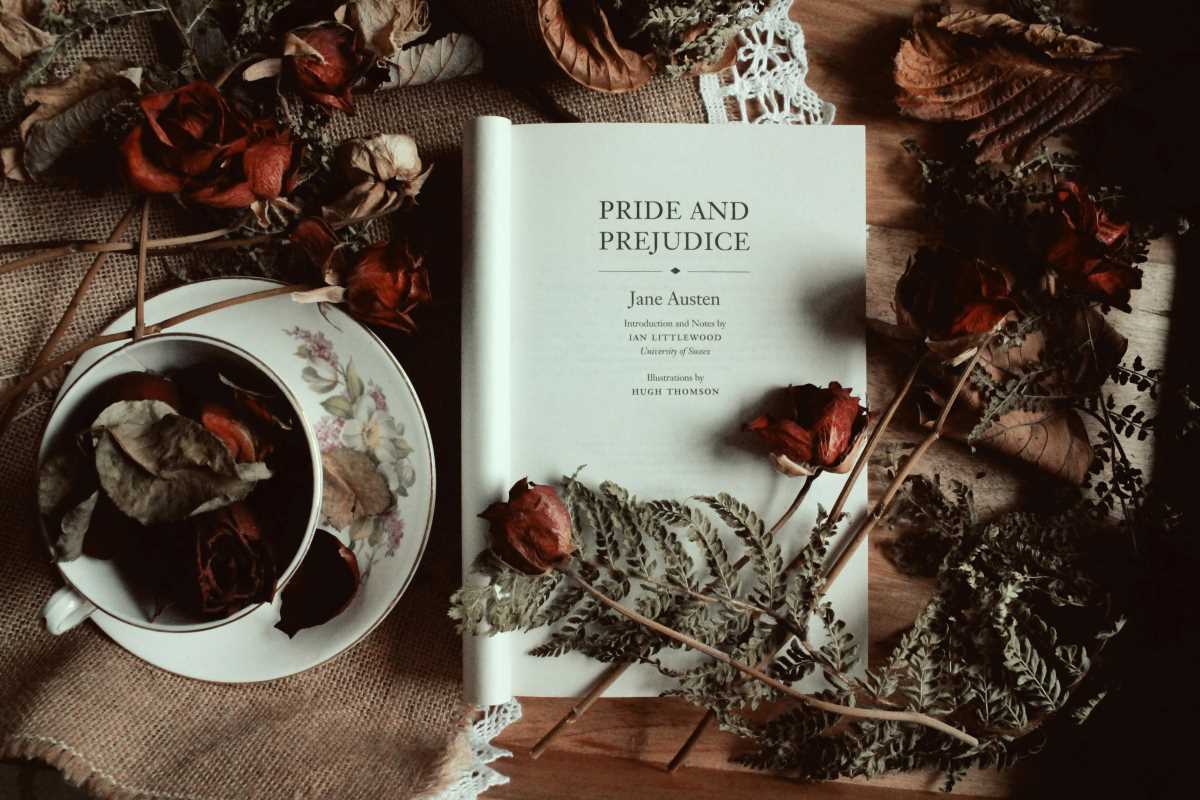When you think about love stories, you might picture grand gestures, long walks at sunset, or star-crossed lovers defying all odds. But some of the most enduring love stories are found in classic novels, books written decades (sometimes centuries) ago that are still being read and loved today. These books still resonate because their themes, characters, and emotions remain relevant no matter the era. These classics explore what it means to connect with another person, struggle with inner conflict, or fight against society’s expectations. Whether you're a long-time reader or new to romance, these timeless tales are worth revisiting. We’ll explore a selection of classic romance novels that continue to captivate modern readers.
1. Pride and Prejudice by Jane Austen
If you enjoy witty dialogue and slow-burn romance, Pride and Prejudice is a must-read. Written in 1813, Jane Austen’s novel focuses on Elizabeth Bennet, a sharp-tongued yet caring young woman, and Mr. Darcy, a wealthy but socially awkward gentleman. The story follows their initial misunderstandings and gradual realization of their love for one another.
Why does it still hold up? For one, Elizabeth Bennet is one of the most relatable heroines in literature. She’s intelligent and independent, refuses to settle for a loveless marriage, and has a bold attitude for the time. Darcy, on the other hand, grows from a proud aristocrat into a self-aware partner, making their emotional arc incredibly satisfying. The humor, social commentary, and exploration of love beyond superficial attraction make this novel as engaging now as it was two centuries ago.
2. Wuthering Heights by Emily Brontë
Emily Brontë’s Wuthering Heights isn’t your typical love story. It’s dark, passionate, and, at times, downright tragic. Published in 1847, this novel chronicles the intense, destructive relationship between Heathcliff, a brooding orphan, and Catherine Earnshaw, the headstrong woman he loves. Their love is obsessive and all-consuming, leaving no character untouched by its fallout.
Modern readers continue to be drawn to Wuthering Heights for its emotional intensity and gothic atmosphere. It explores themes like revenge, toxic relationships, and the ways love can transcend even death. Heathcliff and Catherine’s story isn’t exactly a model for a healthy relationship, but it’s hard to deny its magnetic pull.
3. Jane Eyre by Charlotte Brontë
Written by Emily’s sister, Charlotte Brontë, Jane Eyre (1847) is a perfect blend of romance, drama, and self-discovery. It follows Jane, an orphaned girl with a strong moral compass, as she navigates life and love while staying true to herself. Her romance with the mysterious Mr. Rochester is full of twists and moral dilemmas, but at its heart, the story is as much about Jane’s inner strength as her romantic feelings.
Jane Eyre endures because it demonstrates how important it is to value yourself in a relationship. Jane refuses to compromise her principles, even when it hurts. Her character development from a meek orphan to a confident woman is inspiring. Add in atmospheric settings, hidden secrets, and heartfelt moments, and you have a timeless classic.
4. Anna Karenina by Leo Tolstoy
Leo Tolstoy's Anna Karenina (1877) is another heavyweight in the romance genre. Set against the backdrop of 19th-century Russian aristocracy, the novel weaves multiple storylines, but the tragic romance between Anna and Count Vronsky takes center stage. Unlike many other classic romances, Anna Karenina is more of a cautionary tale, examining the consequences of forbidden love.
This novel resonates with readers because it dives deep into complex emotions like guilt, desire, and societal rejection. While Anna’s choices may seem extreme, her struggles with passion and belonging could still strike a chord with anyone who’s felt torn between their heart and their obligations.
5. Romeo and Juliet by William Shakespeare
You can’t talk about timeless romance without mentioning Romeo and Juliet. Shakespeare’s tragedy, written around 1597, follows two young lovers whose families are enemies. Their relationship is intense and short-lived, but it’s become the archetype for countless romantic dramas.
Though the language might feel old-fashioned, the themes aren’t. It’s a story about the power of love and the tragic consequences of misunderstanding and hate. Even if you know how it ends, Romeo and Juliet continues to spark conversations about youth, loyalty, and the lengths people will go for love.
6. Rebecca by Daphne du Maurier
Though written more recently (1938), Daphne du Maurier’s Rebecca has earned its spot as a modern classic. This psychological romance tells the story of a young woman who marries the enigmatic Maxim de Winter, only to find herself haunted by the memory of his late first wife, Rebecca.
Part romance, part mystery, Rebecca explores love’s complexities, especially when jealousy and insecurity come into play. Fans are drawn to its suspenseful writing and the way it skillfully questions whether love alone can overcome the ghosts of the past. It’s proof that romance doesn’t have to be lighthearted to be compelling.
7. Gone with the Wind by Margaret Mitchell
Margaret Mitchell’s Gone with the Wind (1936) is one of the most iconic romance novels in American literature. Set during the American Civil War and Reconstruction Era, it tells the story of Scarlett O’Hara, a determined and resourceful young woman, and her tumultuous relationship with the roguish Rhett Butler.
What makes this novel timeless is its fascinating lead characters. Scarlett is far from a typical heroine; she’s flawed, self-centered, and endlessly ambitious, yet readers can’t help but root for her resilience. Rhett, on the other hand, is charming, pragmatic, and just as deeply complicated as Scarlett herself. Their intense, on-again, off-again relationship illustrates the complexities of love, pride, and survival in challenging circumstances.
Beyond its characters, the novel also offers a sweeping examination of historical change, exploring themes of loss, social upheaval, and the cost of clinging to the past. While controversial in its portrayals of race and history, Gone with the Wind remains a gripping and thought-provoking exploration of love and human nature.
At their core, these novels endure because they capture universal truths about love, loss, and human connection. For modern readers, they offer a chance to reflect on how society has changed (or hasn’t). They remind us that the past can teach us valuable lessons about both love and life. One thing that will never change about romance is that it's always worth reading.
 (Image via
(Image via





